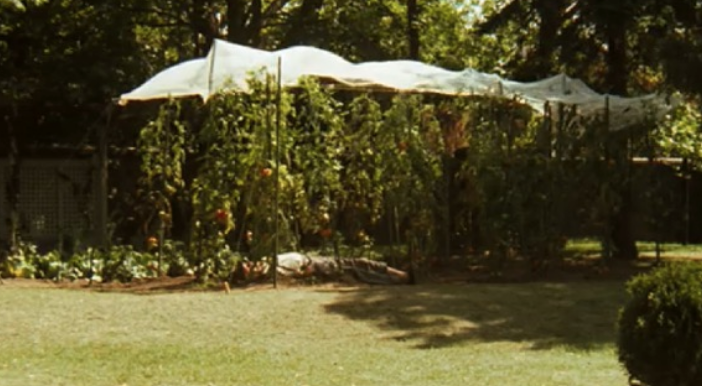Ripeness Is All: The Death of Vito Corleone
By Daniel Arias
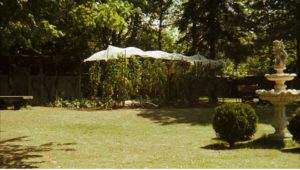
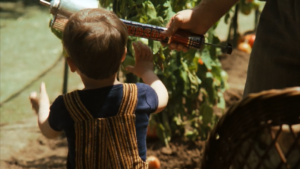
This power dynamic is reenacted in the garden scene when Vito hands his grandson the watering gun. As a fatigued old grandfather, Vito can no longer stand for too long and he must sit down to watch Anthony play. From this position, Vito still seeks out any control he might have, shouting at his grandson, “over her, over here. Be careful, you’re spilling it, you’re spilling it. Anthony, come here, come here. Come here.” In the same way that he cannot control how Michael runs the family business, Vito cannot control how Anthony uses the water gun to feed the tomato vines. He has passed down the power to the new generation of his family: how they use that power, and how it affects them, are completely out of his control.
***
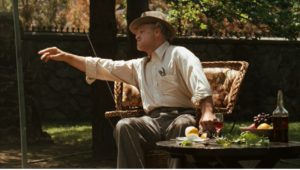
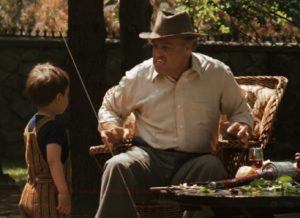
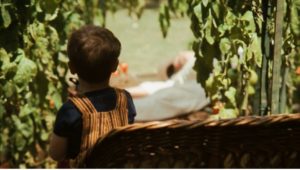
At the very moment of Vito’s death, Coppola notably cuts to a more distant shot. The camera frames the tomato garden at the center of the backyard; in the confines of the garden lies Vito’s body. The image of Vito resting on the soil, the foundation of the garden, resonates with Vito’s role as the foundation of his family and business. He has worked and exerted himself completely to maintain the growth of his personal and family legacy. As a result, like the ripe tomatoes that must fall to make room for new ones, Vito must fall in order to make room for the new Don, his son.
There’s a sense that, even as this scene portrays the death of Vito Corleone, it also encapsulates his life. Vito has done everything in his power to plant, care for, and grow the seeds of his personal and business life. By laying the foundation for his generation and the generations to come after him, he has become the foundation. Coppola gives us as viewers five seconds to hear the wind and the birds chirping so that we register that this is a natural death — one that, for all its sadness, completes a cycle.
